
Diet Wisdom
Dr. Collins shares Dieting and Weight-Loss Information
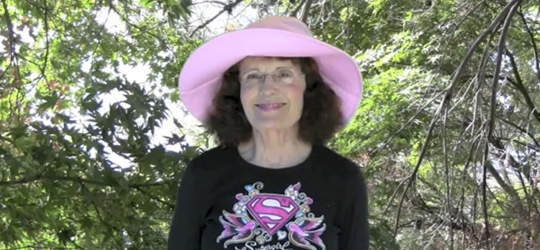
Words of Wisdom
Dr. Collins makes Brief Positive Statements for Inspiration and Motivation.
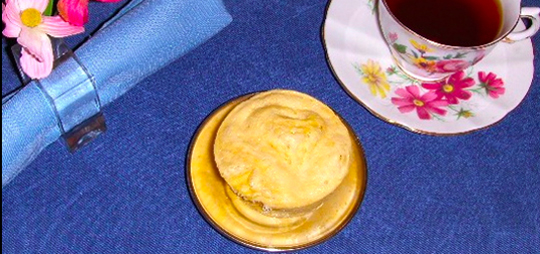
Recipes
Healthy Home Cooking by Dr. Collins for a Low-Calorie Lifestyle.

Grandma's House
A place for Grandbabies to visit with their online Grandma.
The Fat Trap - Follow-up
- POSTED ON: Dec 12, 2012

Regarding the article I recently posted: The Fat Trap, I am one of those people who believes that saying “weight-loss and maintenance is easy” is an unhelpful lie, and that telling people the Truth about weight-loss and maintenance is what is Helpful.
Below are a couple of follow-up questions and answers about the article that I think are worth posting at here at DietHobby.
Reader’s Question:
Were you at all worried that by writing a high-profile article about this research you would discourage people who are unhealthily overweight from trying to lose weight?
Answer from Auther, Tara Parker Pope:
I was really worried that the story would be discouraging to people, but I have been so pleased by the hundreds of e-mails and comments sent by readers. So many readers said to me, “Finally, my life made sense….” and “Now that I understand what’s happening, I’m really encouraged to try again…” One reader wrote that she found the article to be “sobering, challenging, and comforting all at the same time.” We don’t do dieters any favors by telling them that it’s easy and simple. I think telling people the truth about weight loss leaves them far better equipped to tackle the problem.
Reader’s Question:
A fascinating and disturbing part of this article is the section where you detail the extremely regimented lives of a few formerly obese people who have managed to keep off the weight. These rare individuals, as you quote a Yale scholar saying, “never don’t think about their weight.” A Slate article on your piece argues that the mentality of these people “resembles the symptoms of an eating disorder.” They suggested that our fat problem is not obesity but that we encourage people to adopt an eating-disorder mentality to fight obesity. How would you respond to this?
Answer from Auther, Tara Parker Pope
I think if a person had epilepsy and needed to adopt a very regimented diet to control that disease, nobody would accuse them of having an eating disorder. A person with high blood pressure might cut back on salt and take medication, and we don’t judge him. A person with Type 1 diabetes has to be very careful about what they eat and constantly monitor blood sugar to stay well. Again, we don’t question this behavior or call it disordered eating. But a person with obesity as a medical condition is ridiculed for gaining the weight in the first place and then they are criticized for being hypervigilant about maintaining a healthy weight. That said, I thought the Slate article made a good point, concluding “that a society that stigmatizes people for a physical attribute that they can’t change is the real fat trap we ought to be trying to escape.”
The Fat Trap
- POSTED ON: Dec 11, 2012

Research exists ![]() showing that a biological and metabolic backlash is triggered by weight-loss.
showing that a biological and metabolic backlash is triggered by weight-loss.
Learning about the way our own biology operates to influence us with regard to food and weight issues helps make sense out of our dieting struggles, and provides a better understanding of the challenges that overweight / obese people face.
 Here is an excellent article that was published in the New York Times about that issue.
Here is an excellent article that was published in the New York Times about that issue.
The Fat Trap
by Tara Parker-Pope -- The New York Times 12/28/11
For 15 years, Joseph Proietto has been helping people lose weight. When these obese patients arrive at his weight-loss clinic in Australia, they are determined to slim down. And most of the time, he says, they do just that, sticking to the clinic’s program and dropping excess pounds. But then, almost without exception, the weight begins to creep back. In a matter of months or years, the entire effort has come undone, and the patient is fat again. “It has always seemed strange to me,” says Proietto, who is a physician at the University of Melbourne. “These are people who are very motivated to lose weight, who achieve weight loss most of the time without too much trouble and yet, inevitably, gradually, they regain the weight.”
Anyone who has ever dieted knows that lost pounds often return, and most of us assume the reason is a lack of discipline or a failure of willpower. But Proietto suspected that there was more to it, and he decided to take a closer look at the biological state of the body after weight loss.
At that point, the 34 patients who remained stopped dieting and began working to maintain the new lower weight. Nutritionists counseled them in person and by phone, promoting regular exercise and urging them to eat more vegetables and less fat. But despite the effort, they slowly began to put on weight. After a year, the patients already had regained an average of 11 of the pounds they struggled so hard to lose. They also reported feeling far more hungry and preoccupied with food than before they lost the weight.
While researchers have known for decades that the body undergoes various metabolic and hormonal changes while it’s losing weight, the Australian team detected something new. A full year after significant weigh...
Marketing Healthy
- POSTED ON: Dec 10, 2012

Below is an amusing and informative video by Dr. Yoni Freedhoff about the food industry.
Notice that the suggestion in this video involves the hotly contested political issue of Governmental control. Dr. Freedhoff, a Canadian obesity medical doctor, believes that governments should provide more regulations for the food industry. Most people want the Government to provide individual protection, but not to the extent that it interferes with individual Freedom.
It is obvious that Society needs to provide rules to protect individuals, but most people agree that there must be a border, or limit, in order to provide balance between an individual’s protection and an individual’s freedom. The issue addressed is a good example of that Question of Balance.
...Keep On
- POSTED ON: Dec 09, 2012

...
History of the USDA Food Pyramid
- POSTED ON: Dec 08, 2012
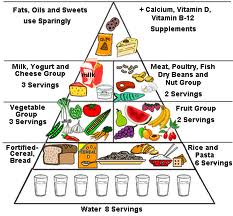
While researching some recent history on the timeline of food events,
I ran across the fact that the Food Pyramid wasn’t even created until 1992.
![]() This surprised me, because somehow in the vague recesses of my mind, it was something taught to me during the early 1950s in the lower grades of elementry school, and I thought I recalled it being the subject of discussion in an undergraduate sociology college class in the late 1970s. However, after a bit more research I learned the following information.
This surprised me, because somehow in the vague recesses of my mind, it was something taught to me during the early 1950s in the lower grades of elementry school, and I thought I recalled it being the subject of discussion in an undergraduate sociology college class in the late 1970s. However, after a bit more research I learned the following information.
USDA Food Pyramid History
The USDA Food Pyramid has its origins in the practice of agricultural chemistry in the late 1800s. Wilbur Olin Atwater, Ph.D., an agricultural chemist who founded and directed the Office of Experiment Stations (OES) for the USDA, wrote the first dietary guideline,
Atwater was a researcher, and received government funds to build a large respiration calorimeter for studying human metabolism,
In 1902, Atwater published a USDA Farmer’s Bulletin which emphasized the importance of variety, proportionality, and moderation in healthful eating in the diets of American males. In his research, he determined that the calorie was a means to measure the efficiency of a diet. He calculated that different types of food produced different amounts of energy, and he stressed the importance of a cheap and efficient diet that included more proteins, beans, and vegetables, and to limit the intake of fat, sugar and other starchy carbohydrates.
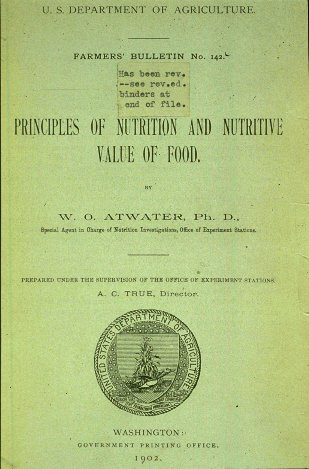
1917, the first USDA food guide appeared. It was titled How to Select Foods and was written by Caroline Hunt, a nutritionist for the USDA. It ignored Dr. Atwater’s advice to limit fat and sugar intake, and instead emphasized newly discovered vitamins and minerals. Foods recommended came in 5 groups:
milk and meat
cereals
vegetables and fruit
fats and fatty foods
sugars and sugary foods
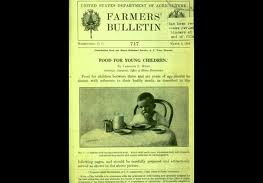
There were changes to this basic guide to help families during the wartime rationing, but it wasn’t until 1940, when the first "Recommended Dietary Allowances (RDA)" was released from the National Academy of Sciences, that the USDA changed its recommendations again.
In 1943, it created the National Wartime Nutrition Guide, and then revised it in 1946 as the National Nutrition Guide. This guide offered 7 food groups which supported the RDA requirements:
Milk and milk products
Meat, poultry, fish, eggs, beans, peas and nuts
Bread,...
<< Newest Blogs | Page 203 | Page 213 | Page 223 << Previous Page | Page 231 | Page 232 | Page 233 | Page 234 | Page 235 | Page 243 | Page 253 | Page 263 | Next Page >> Oldest >>











